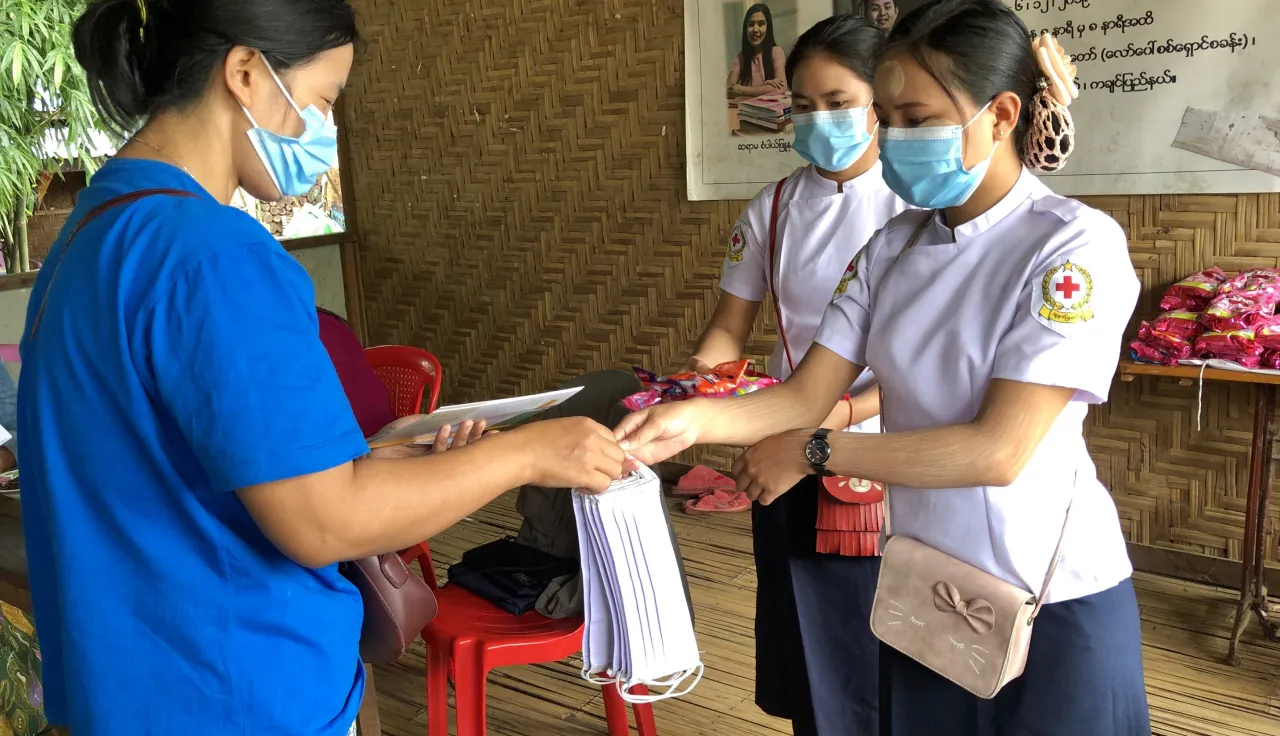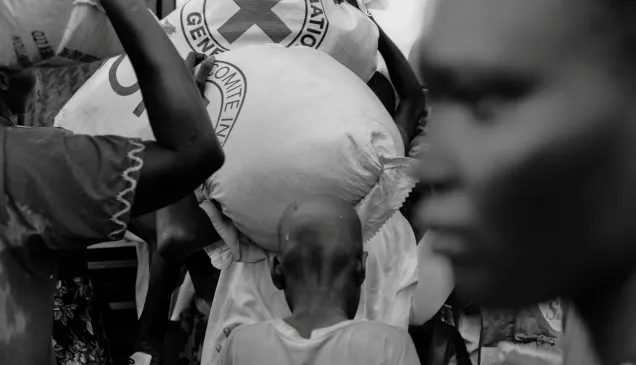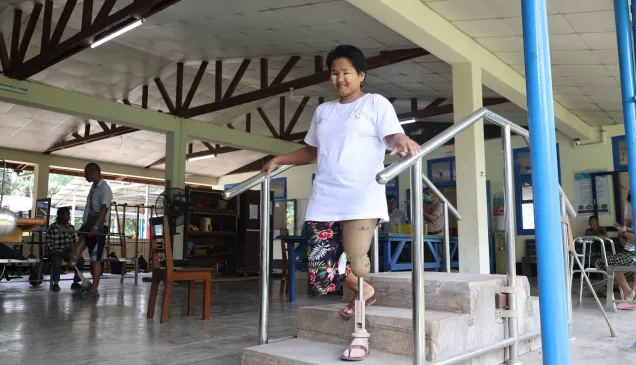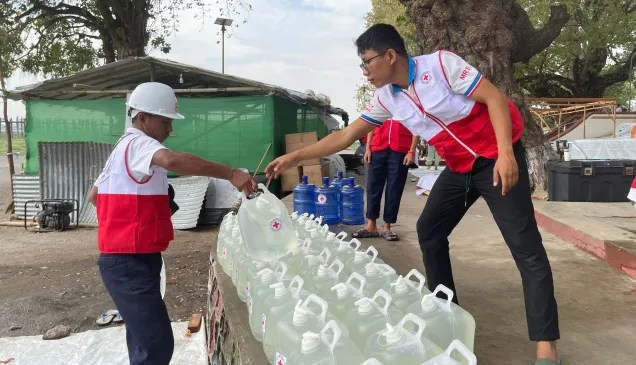Myanmar: Community-based production of reusable fabric masks to help mitigate risks of COVID-19

ICRC supports displaced communities in an effort to mitigate COVID-19 and encourage sustainable living by providing textile supplies for mask production and distribution in Kachin and Rakhine, Myanmar.
COVID-19 presented an additional challenge for many displaced families living across Myanmar. In Rakhine State, some 350 tailors seized the opportunity to put their skills to use and help their own communities mitigate the effects of the pandemic.
With the support of the ICRC, these seamstresses got to work and produced 123,000 reusable fabric face masks in just two weeks. These masks were distributed to families living in temporary sites in Rakhine, to help limit the spread of COVID-19.
ICRC supports mask production and distribution in displaced communities — Kachin, Myanmar from ICRC on Vimeo.
Two months later, efforts continue as the ICRC works in Kachin to oversee the living condition of internally displaced people (IDP), whose lives are affected by ongoing armed conflict, and to mitigate the pandemic spread as part of the COVID-19 response.
Across 45 IDP camps, the ICRC worked with 73 women tailors to produce reusable fabric masks. They were supplied with basic textile materials and equipment, and their efforts resulted in the completion of over 92,000 face masks sewn, which were distributed to 28,000 people.
ICRC's first mask production and distribution initiative in displaced communities in Rakhine from ICRC on Vimeo.
Much like the pilot program in Rakhine, seamstresses in Kachin, with the support of the ICRC, also rallied to produce masks for their families and their communities. These two initiatives ensured that families who were displaced were able to have at least 2 reusable masks per person and seamstresses were able to earn an income while giving back to their own community.



